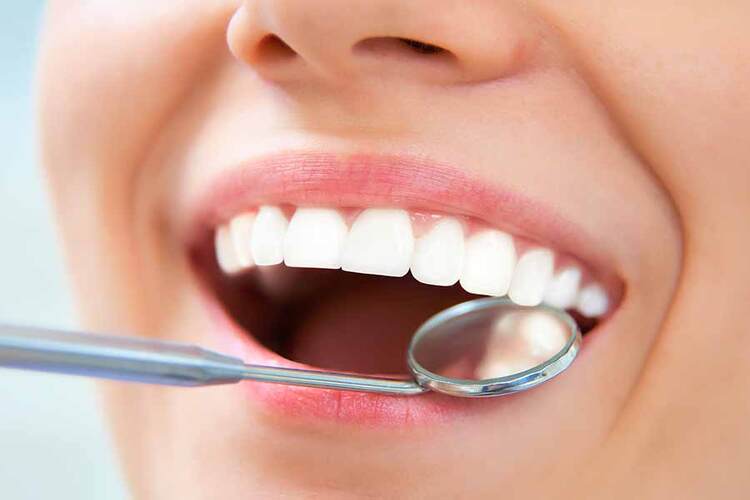
WHAT IS ORAL HYGIENE?
Oral hygiene is keeping your mouth, teeth, and gums healthy. It includes regular flossing, brushing with fluoride toothpaste, and visiting your dentist for routine check-ups.
Good oral hygiene habits are essential as they help to reduce bacteria in your mouth that can cause cavities and bad breath, as well as other oral health issues.
Also, oral hygiene helps prevent oral diseases such as gingivitis and periodontal disease.
Making oral hygiene part of your daily routine can help you maintain a healthy smile for life!
WHAT TYPES OF ORAL HYGIENE ARE ALL THERE?
Oral hygiene includes a variety of habits and practices to keep the oral cavity clean and healthy.
Brushing teeth twice a day with fluoridated toothpaste is one of the essential oral hygiene practices, as it helps remove plaque buildup that can lead to gum disease.
Flossing daily to remove food particles that brushing can’t reach is also vital. Mouthwash can help reduce bacteria in the oral cavity and freshen your breath.
Regular visits to the dentist are essential for oral health, as they will provide professional cleaning and advice on oral care. Dietary changes such as reducing sugary snacks and drinks can also improve oral health by minimizing bacterial growth.
Good oral hygiene practices allow individuals to maintain good oral health for lasting health benefits.
WHICH THREE DISEASES AFFECT ORAL HYGIENE?
Poor oral hygiene leads to an array of oral health issues.
Three of the most common diseases related to oral hygiene are cavities, periodontal disease, and oral cancer. Cavities are caused by a buildup of plaque and occur when bacteria eat away at tooth enamel leading to holes in the teeth.
If left untreated, they can cause severe pain and lead to infection. Periodontal disease is an inflammation of the gums caused by bacteria in plaque that accumulates between the teeth and gum line.
If left untreated, it can cause swelling, tenderness, bleeding, and bad breath.
Finally, oral cancer is often caused by lifestyle choices such as smoking or drinking alcohol excessively; it has a high risk of spreading rapidly and can be deadly if not caught in its early stages.
All three diseases can be prevented or treated with proper oral hygiene, including regular brushing and flossing.
HOW CAN I MAINTAIN BETTER ORAL HYGIENE?
Keeping a healthy oral hygiene routine is essential to overall health and can be easily accomplished through regular brushing, flossing, and gargling with mouthwash.
It’s best to brush your teeth twice daily for two minutes each time and floss at least once daily.
Brushing and snacking on crunchy fruits and vegetables like apples and carrots provides a natural way to help keep your teeth clean while also keeping your breath fresh.
Gargling with a fluoride mouthwash helps remove plaque in areas that are difficult to reach with a toothbrush and floss.
Consult with your dentist regularly – usually every six months – as they will likely have additional oral hygiene tips tailored to your oral health needs.
WHAT ADVANTAGES CAN GOOD DENTAL HYGIENE PROVIDE?
Good oral hygiene is an essential component of overall health. It helps reduce the risk of oral health problems such as tooth decay, gingivitis, and periodontitis.
Good oral hygiene can protect your teeth, but it also has other benefits that may not be immediately recognized. Regular brushing and flossing help to remove bacteria that can cause bad breath and may also help reduce the risk of heart disease and stroke.
Additionally, consistent oral care can improve quality of life in general by increasing oral health, function, and attractiveness. Implementing an oral hygiene routine will lead to a healthier lifestyle overall.
WHAT SYMPTOMS INDICATE POOR ORAL HYGIENE?
Poor oral hygiene can lead to various oral health concerns, with some telltale signs being lousy breath, gum disease, oral thrush, and cavities.
Bad breath is commonly an indicator that oral hygiene may be lacking, as it could mean that bacteria is left to accumulate in the mouth due to unclean teeth and tongue.
Gum disease also tends to manifest itself sooner when oral hygiene is subpar, usually occurring as swollen or tender gums due to bacterial buildup along the gumline. Furthermore, oral thrush often appears in adults who do not practice good oral hygiene, especially those affected by weaker immune systems.
Lastly, cavities are most often seen in people who find it challenging to keep up with tooth brushing and other oral care rituals daily.
Therefore, everyone needs to prioritize their oral health so they don’t have to deal with these unwanted symptoms.



